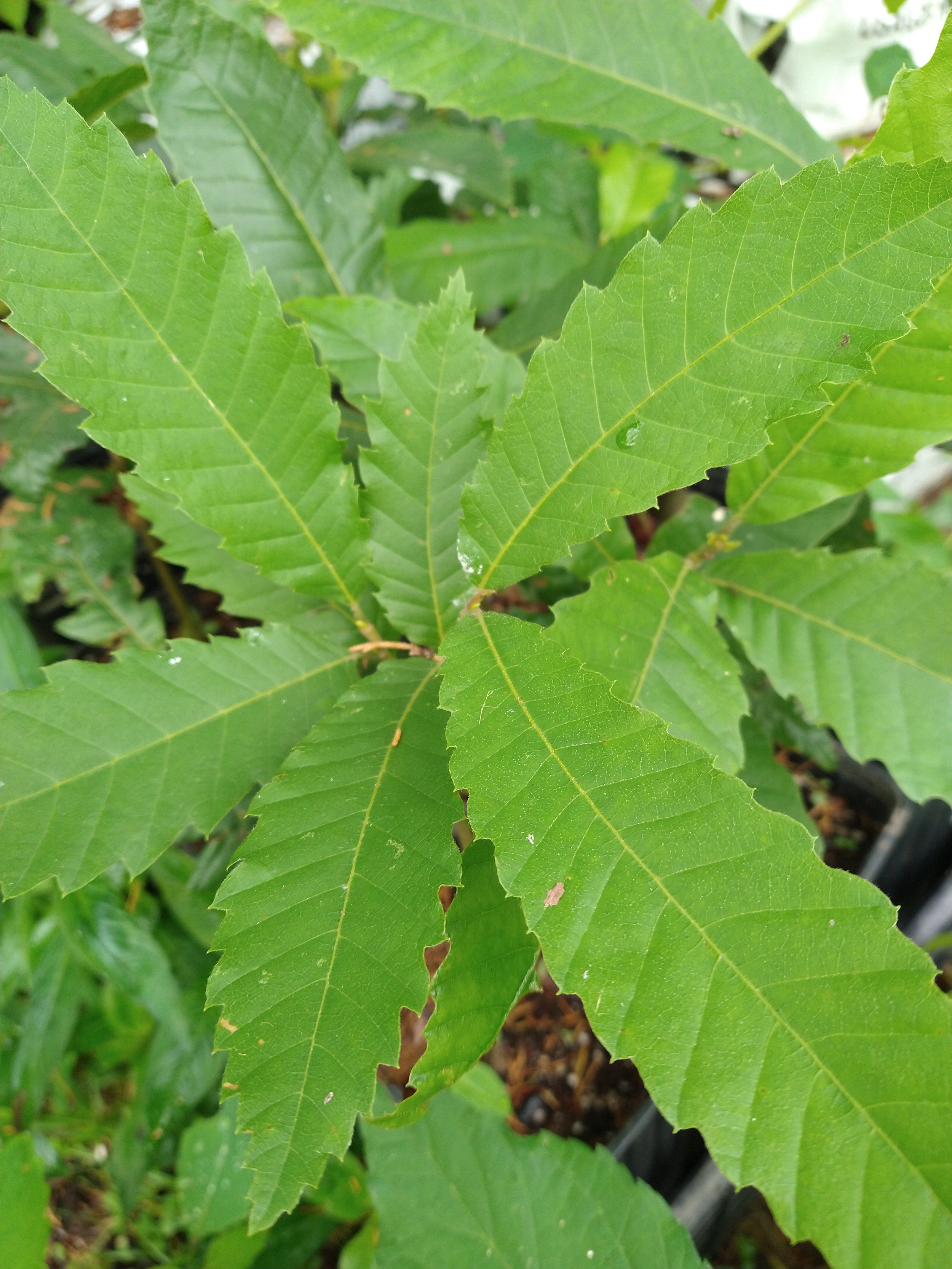Belle Epine Chestnut
The Castanea genus are a group of large deciduous tree belonging to the huge family Fagaceae. Belle Epine (C. crenata x C. sativa) originated in France and is renowned for its savory, umami flavor. It is late to ripen in late September.
Growing conditions: Full sun (6 or more hours of direct sunlight a day), well drained to dry soil, likes acid.
Size at maturity: 15’-20’
Uses: Currently, the USA imports the vast majority of its chestnut demand. We believe that the chestnut will once again regain its status as a major staple crop in the next decade or two. If you’ve ever eaten a sweet and chewy chestnut fresh from being roasted on some coals on an open fire in autumn, you’ll see why we believe this. No wonder they wrote a Christmas song about this tree.
USDA Hardiness Zone: 6-8
The Castanea genus are a group of large deciduous tree belonging to the huge family Fagaceae. Belle Epine (C. crenata x C. sativa) originated in France and is renowned for its savory, umami flavor. It is late to ripen in late September.
Growing conditions: Full sun (6 or more hours of direct sunlight a day), well drained to dry soil, likes acid.
Size at maturity: 15’-20’
Uses: Currently, the USA imports the vast majority of its chestnut demand. We believe that the chestnut will once again regain its status as a major staple crop in the next decade or two. If you’ve ever eaten a sweet and chewy chestnut fresh from being roasted on some coals on an open fire in autumn, you’ll see why we believe this. No wonder they wrote a Christmas song about this tree.
USDA Hardiness Zone: 6-8
The Castanea genus are a group of large deciduous tree belonging to the huge family Fagaceae. Belle Epine (C. crenata x C. sativa) originated in France and is renowned for its savory, umami flavor. It is late to ripen in late September.
Growing conditions: Full sun (6 or more hours of direct sunlight a day), well drained to dry soil, likes acid.
Size at maturity: 15’-20’
Uses: Currently, the USA imports the vast majority of its chestnut demand. We believe that the chestnut will once again regain its status as a major staple crop in the next decade or two. If you’ve ever eaten a sweet and chewy chestnut fresh from being roasted on some coals on an open fire in autumn, you’ll see why we believe this. No wonder they wrote a Christmas song about this tree.
USDA Hardiness Zone: 6-8



